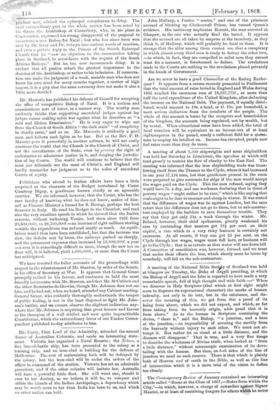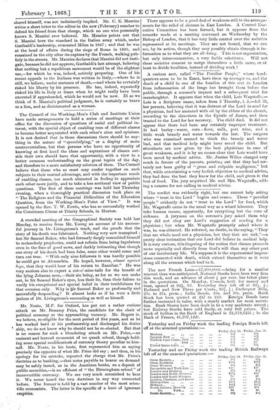The Contemporary Review of January contained an interesting article called
"Rome at the Close of 1867,—Notes from within the City,"—in which, however, a charge of cowardice against Signor Mazzini, or at least of contriving dangers for others which he never
shared himself, was not indistinctly implied. Mr. C. E. Maurice writes a short letter to the editor in the new (February) number to defend his friend from that charge, which no one who personally knows S. Mazzini ever believed. Mr. Maurice points out that S. Mazzini bore the standard in the Italian army which, under Garibaldi's leadership, evacuated Milan in 1847 ; and that he was at the head of affairs during the siege of Rome in 1849, and remained in the city after its capture by the French, walking pub- licly in the streets. Mr. Maurice declares that Mazzini did not insti- gate, because he did not approve, Garibaldi's last attempt, believing that nothing but a republican movement would be of the slightest use,—for which he was, indeed, actively preparing. One of his recent appeals to the Italians was written in Italy,—where he is still, we believe, under sentence of death,—and where he certainly risked his liberty by his presence. He has, indeed, repeatedly risked his life in Italy at times when he might really have been executed if apprehended, which he would not be now. Ill as we think of S. Mazzinis political judgment, he is certainly as brave as a lion, and as disinterested as a woman.



































 Previous page
Previous page